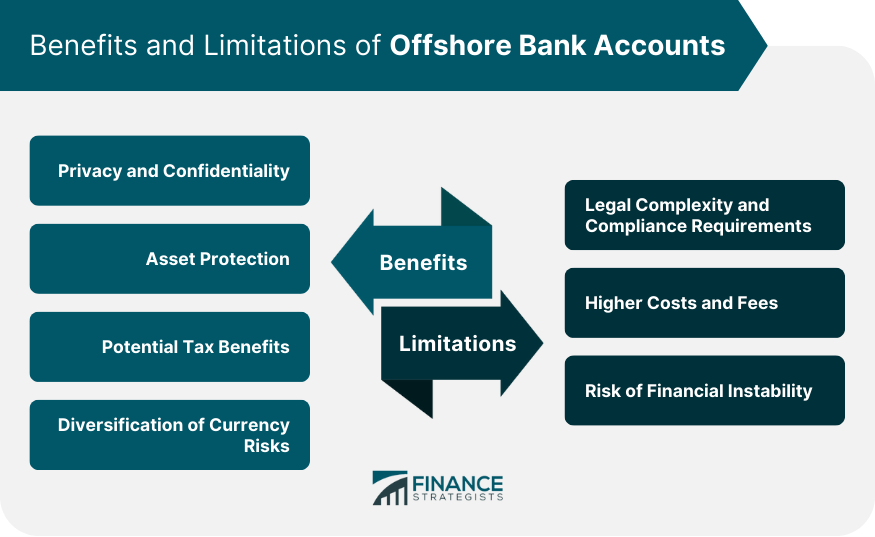Recognizing the Legal Effects of Offshore Company Formation

Lawful Structure for Offshore Business
When developing an offshore business, recognizing the lawful structure governing its development and procedure is crucial for compliance and danger monitoring. Offshore business operate under particular legislations and laws that vary from those of onshore entities. The lawful structure for overseas companies usually consists of stipulations for firm enrollment, investor requirements, supervisor duties, and tax obligation commitments.
Firm enrollment entails submitting the needed documents to the ideal governing authorities in the picked territory. This process often needs comprehensive info about the company's framework, investors, and desired activities. Additionally, offshore firms have to abide by certain shareholder demands, such as maintaining a register of shareholders and maintaining this info up to day.
Directors of offshore companies have fiduciary duties to act in the ideal passions of the business and its shareholders. They are accountable for supervising the company's procedures, making certain compliance with all relevant regulations, and managing threats properly. Moreover, understanding the tax obligation responsibilities of an offshore company is vital to stay clear of any type of potential lawful issues. By adhering to the legal structure regulating offshore companies, services can run with self-confidence while decreasing lawful dangers.


Tax Ramifications and Regulations
Understanding the tax effects and regulations is vital when considering the establishment and operation of an offshore business. Offshore firms are frequently subject to positive tax obligation regimes, providing minimized or zero tax rates on foreign-earned earnings.
Tax regulations for overseas firms differ substantially across territories, and it is vital to seek expert suggestions to understand the particular requirements and responsibilities. Thorough knowledge of tax obligation regulations and guidelines, as well as proper tax obligation planning, are crucial to make sure the certified and successful procedure of an offshore firm.
Compliance Needs and Reporting
Making certain compliance with regulative demands and keeping exact reporting are necessary facets of managing an offshore company effectively and transparently. Offshore business must stick to the legislations and guidelines of both the territory in which they are included and any kind of various other relevant jurisdictions where they perform business.
Along with regulatory compliance, offshore companies are commonly based on reporting needs to ensure transparency and prevent illegal activities such as money laundering or tax obligation evasion. Coverage commitments might include revealing info regarding the business's ownership framework, monetary activities, and beneficiaries. This information may require to be shown to governing bodies, tax obligation authorities, or various other governmental firms, depending upon the jurisdiction.
Maintaining extensive and accurate records is essential for demonstrating conformity and reacting to any inquiries or audits successfully. Offshore firms need to apply durable reporting devices and interior controls to guarantee that they meet all lawful needs and run with integrity.
Property Security and Privacy Rules
In the world of offshore company development, an essential consideration is the interplay in between asset defense methods and privacy laws. Offshore territories typically offer boosted asset security systems that secure assets from possible threats such as claims, lenders, or political instability in the home country. By structuring possessions within an offshore firm, individuals can secure their wealth and expand their holdings throughout different lawful structures. Privacy legislations in overseas jurisdictions add to keeping confidentiality and privacy for firm proprietors. These legislations limit the disclosure of delicate information, making it challenging for exterior events to access information concerning the company's operations or ownership framework. This degree of personal privacy can be advantageous for people seeking to safeguard their possessions from public analysis or competitors. Nevertheless, it is vital for individuals to navigate these legislations fairly and transparently, ensuring compliance with both offshore policies and the lawful requirements of their home country. Ultimately, understanding the elaborate connection in between property defense approaches and personal privacy regulations is paramount when considering offshore firm development.
Obstacles and dangers to Consider
When venturing right into offshore firm formation, sensible consideration of possible check it out dangers and challenges is necessary for informed decision-making and strategic planning. In addition, political instability or changes in overseas territories can pose a danger to the connection of procedures and the security of properties held by the offshore business.
Difficulties might also occur concerning the intricacy of offshore business frameworks and the demand for expert legal and monetary recommendations to browse the elaborate regulative structures of various territories (offshore company formation). Maintaining compliance with varying international legislations and laws, along with potential language barriers and cultural differences, can even more complicate the offshore firm formation process. It is vital to be familiar with these threats and obstacles prior to waging overseas firm formation to minimize possible challenges and make certain a legitimately audio and smooth facility
Verdict
Finally, offshore company development includes navigating complicated legal structures, tax obligation ramifications, compliance needs, and privacy laws. Understanding these aspects is crucial for minimizing threats and difficulties associated with overseas organization procedures. It is essential for individuals and services thinking about offshore business formation to look Homepage for professional click over here now assistance to make certain compliance with regulations and to secure their assets successfully.
The legal structure for offshore firms usually consists of arrangements for firm registration, investor needs, supervisor obligations, and tax obligation obligations.
Supervisors of overseas business have fiduciary obligations to act in the ideal passions of the company and its shareholders. By sticking to the lawful framework regulating overseas companies, services can operate with self-confidence while minimizing legal dangers.
In addition, political instability or changes in offshore territories can posture a danger to the connection of procedures and the protection of possessions held by the overseas firm. - offshore company formation
In conclusion, offshore company formation involves navigating complicated lawful frameworks, tax ramifications, compliance demands, and privacy legislations.